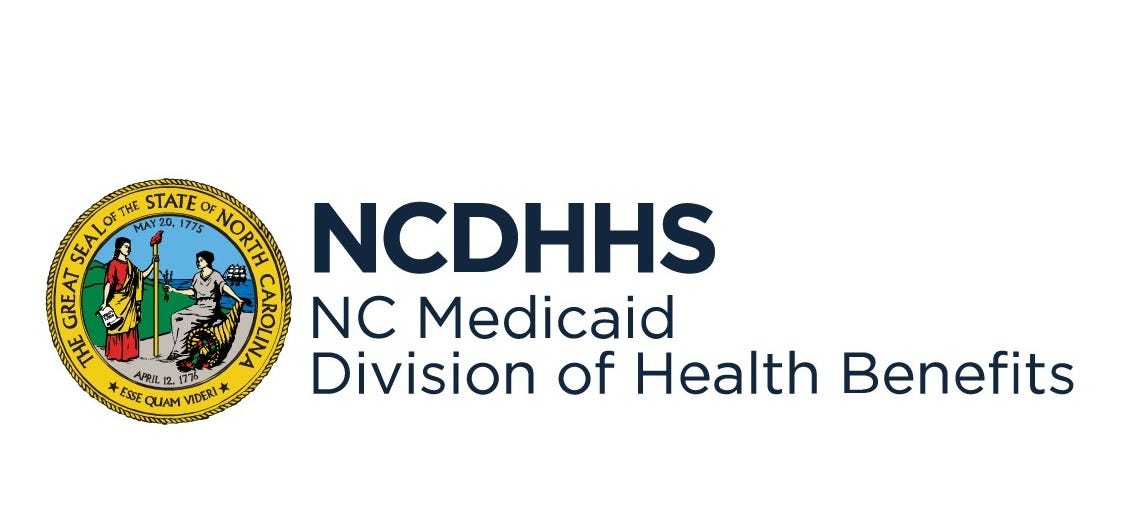Senator Tillis Warns: NC Could Lose $26 Billion in Medicaid Support Under 'One Big Beautiful Bill Act'
More than 400,000 residents across Wake, Harnett, Durham, and Johnston counties could face disruptions to healthcare access.
Holly Springs, NC, Jun. 30, 2025 — More than 400,000 residents across Wake, Harnett, Durham, and Johnston counties could face disruptions to healthcare access if proposed federal Medicaid cuts are enacted under the newly passed Senate reconciliation measure known as the One Big Beautiful Bill Act (link).
According to data and impact assessments from the North Carolina Department of Health and Human Services and U.S. Senator Thom Tillis' office (document), the bill would phase down hospital provider taxes and cap state-directed payments (SDPs), threatening Medicaid expansion and key healthcare services statewide.
Local Numbers, Real People
According to April 2025 Medicaid enrollment data (document):
Wake County: 217,875 residents are enrolled (18% of the population)
Harnett County: 42,100 residents enrolled (28%)
Durham County: 76,647 residents enrolled (22%)
Johnston County: 64,067 residents enrolled (25%)
These four counties alone account for over 400,000 Medicaid recipients—nearly 13% of North Carolina’s total enrollment of 3.1 million.
Medicaid Eligibility in North Carolina (2025)
— Who qualifies, and how much income is allowed?
"Best-Case Scenario is a $26 Billion Cut"
Senator Tillis, speaking on the Senate floor over the weekend, warned that the Medicaid provisions in the reconciliation bill could lead to a $26 to $32 billion funding loss for North Carolina over the next decade (transcript).
"What I found is the best-case scenario is about a $26 billion cut," Tillis said, citing independent assessments from both Republican and Democratic state health officials, along with the North Carolina Hospital Association. (document)
He emphasized that the federal Centers for Medicare & Medicaid Services (CMS) could not disprove the estimate:
"After three different attempts for them to discredit our estimates... they admitted that we were right, that between the state-directed payments and the cuts scheduled in this bill... they can’t find a hole in my estimate," he added.
663,000 Could Lose Coverage
The bill’s provisions would restrict North Carolina’s ability to raise funds through hospital assessments, the primary mechanism used to pay for Medicaid expansion. As a result, the state could be legally required to roll back expansion entirely.
"There are currently 663,000 expansion beneficiaries in NC," the impact report noted. "By law, the North Carolina Department of Health and Human Services is required to end Medicaid expansion if the State cannot fully fund all the State and county costs..."
Tillis pressed the moral and political consequences:
"So what do I tell 663,000 people in two years or three years when President Trump breaks his promise by pushing them off of Medicaid because the funding’s not there anymore, guys?"
Further compounding the issue are new requirements in the bill for more frequent eligibility redeterminations and community engagement mandates. These would increase administrative costs at the state level, which must be funded through a fixed formula that cannot grow under the bill’s proposed provider tax freeze. If those added costs can't be covered, the expansion must be legally ended.
Hospitals, Services, and Patients Under Threat
The loss of HASP (Healthcare Access and Stabilization Program) funding, $4.9 billion in the current fiscal year, would be the first domino to fall. These funds support hospital participation in Medicaid managed care, sustain maternity and behavioral health services in rural areas, and provide capital for infrastructure repairs and workforce recruitment.
A vivid example from the impact report highlighted one hospital flying in emergency HVAC parts during June’s heatwave to remain operational, a cost covered by HASP funds. Other projects supported by the program include expansion of OB/GYN services and construction of a 150-bed behavioral health hospital.
If the provider tax cap in the bill becomes law, the impact report states bluntly:
"Reducing the provider tax cap to 3.5% would eliminate all or most of the HASP reimbursements for hospitals."
But the consequences would not stop at hospital operations. Several other vital services would also be at risk:
Postpartum care for women up to 12 months after childbirth could be eliminated, reversing gains made under Medicaid expansion.
Home and community-based services (HCBS) that allow seniors and people with disabilities to remain in their homes may be cut or eliminated.
Graduate Medical Education (GME) funding, used to train the next generation of physicians, could also be defunded, jeopardizing the pipeline for rural and underserved communities.
Services for aging populations and behavioral health would also be on the table, with reductions or complete removal depending on how state legislators decide to allocate the remaining funds.
What Happens Next?
The Senate could vote on the complete reconciliation package within days, as GOP leaders push for passage ahead of the July 4 holiday. If the bill passes with amendments, it will be returned to the House of Representatives for further approval. Given internal divisions among House Republicans, particularly from the Freedom Caucus, this could spark further negotiations or a formal conference committee between the chambers.
Once both the House and Senate agree on the final text, the legislation would move to the President’s desk. Lawmakers are aiming for the bill to be signed into law by early July, with Medicaid-related provisions potentially taking effect in Fiscal Year 2026, well before the federal debt-ceiling deadline this fall.
How to voice your opinion
NC U.S. Senators
Senator Ted Budd (R‑NC)
Use his “Share Your Opinion” form here:
https://www.budd.senate.gov/contact/Senator Thom Tillis (R‑NC)
Use his “Email Me” contact form here:
https://www.tillis.senate.gov/email-me
Find Your U.S. House Representative
Since the U.S. House is based on districts, there isn't a one‑size‑fits‑all form across North Carolina. Here's how to find your representative's contact form:
Visit House.gov's “Find Your Representative” tool:
https://www.house.gov/representatives/find-your-representativeEnter your ZIP code (and optionally your full address) to identify your district and current Representative.



Oh bullshit
Interesting to learn that Harnett and Johnson Counties both rank higher than Wake and Durham Counties, with 25% and 28% of their citizens being recipients.